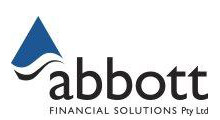If you’re nearing retirement age, it’s likely you’re wondering if you will have enough saved to give up work and take it easy, particularly as cost-of-living increases hit some of the basic expenses such as energy, insurance, food and health costs.
Fortunately, someone has already worked out what you might need.
The Association of Superannuation Funds in Australia (ASFA) updates its Retirement Standard every year, which provides a breakdown of expenses for two types of lifestyles: modest and comfortable.i
Based on our average life expectancy – for women it is just over 85 years and men 81 – if you are about to retire at say age 67, you will have between 14 and 18 years in retirement, on average and depending on your gender.ii

ASFA finds that a couple needs $46,944 a year to live a modest lifestyle and $72,148 to live a comfortable lifestyle. That’s equal to $902 a week and $1387 respectively. The figure is of course lower for a single person – $32,666 for a modest lifestyle ($628 a week) or $51,278 ($986) for a comfortable lifestyle.iii
What does that add up to? ASFA estimates that, for a modest lifestyle, a single person or a couple would need savings of $100,000 at retirement age, while for a modest lifestyle, a couple would need at least $690,000.iv
A modest lifestyle means being able to afford everyday expenses such as basic health insurance, communication, clothing and household goods but not going overboard. The difference between a modest and a comfortable lifestyle can be significant. For example, there is no room in a modest budget to update a kitchen or a bathroom; similarly overseas holidays are not an option.
The rule of thumb for a comfortable retirement is an estimated 70 per cent of your current annual income.v (The reason you need less is that you no longer need to commute to work and you don’t need to buy work clothes.)
Building your nest egg
So how can you build up a sufficient nest egg to provide for a good life in retirement? There are three main sources: superannuation, pension and investments/savings. Superannuation has the key advantage that the money in your pension is tax free in retirement.
Your superannuation pension can be augmented with the government’s Aged Pension either from the moment you retire or later when your original nest egg diminishes.
Your income and assets will be taken into account if you apply for the Age Pension but even if you receive a pension from your super fund, you may still be eligible for a part Age Pension. You may also be eligible for rent assistance and a Health Care Card, which provides concessions on medicines.vi
Money keeps growing
It’s also important to remember that the amount you accumulate up to retirement will still be generating an income, whether its rentals from investment properties or merely the growth in the value of your share investments and the accumulation of money from any dividends paid.
You can also continue to add to your superannuation by, for instance, selling your family home and downsizing, as long as you have lived in the home for more than 10 years.
If you are single, $300,000 can go into your super when you downsize and $600,000 if you are a couple. This figure is independent of any other superannuation caps.vii
Planning for a good life in retirement often require just that – planning. If you would like to discuss how retirement will work for you, then give us a call.
i Retirement Standard – Association of Superannuation Funds of Australia
ii Life expectancy, 2020 – 2022 | Australian Bureau of Statistics (abs.gov.au)
iii https://www.superannuation.asn.au/media-release/retiree-budgets-continue-to-face-significant-cost-pressures
iv https://www.superannuation.asn.au/resources/retirement-standard/
v https://www.gesb.wa.gov.au/members/retirement/how-retirement-works/cost-of-living-in-retirement
vi Assets test for Age Pension – Age Pension – Services Australia
vii Downsizer super contributions | Australian Taxation Office (ato.gov.au)


